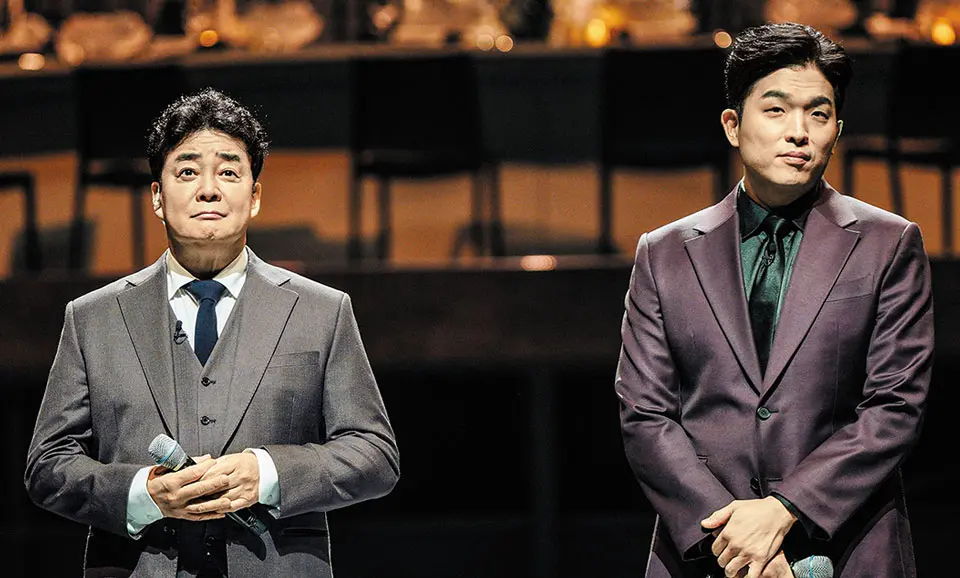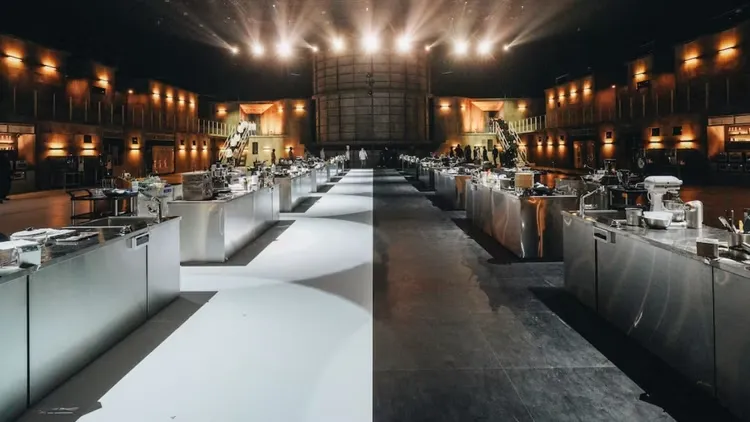Netflix’s Culinary Class Wars isn’t just another cooking show—it’s a global sensation that has captivated audiences from Seoul to San Francisco. With its high-stakes competition between renowned chefs and underdog culinary talents, this Korean reality show is shaking up the cooking world.
The intense battles, surprising twists, and raw emotion are leaving viewers hooked, episode after episode. But what exactly sets this show apart from the countless other cooking competitions?
Let’s dive into why Culinary Class Wars has not only captured global attention but also redefined what it means to win in the kitchen, changing the way we view food and competition forever.

Why Culinary Class Wars Stands Out from the Crowd
If you’re a fan of cooking competition shows like MasterChef or Top Chef, you might think you’ve seen it all. However, Culinary Class Wars brings a fresh twist by pitting two distinct groups against each other: the renowned White Spoon chefs and the Black Spoon underdogs, often talented but less recognized. This isn’t just about fancy plating or Michelin-star techniques; it’s about pride, passion, and breaking down class barriers in the culinary world. With an elimination process starting with 100 chefs and narrowing down to the finalists, the show offers both gripping drama and a celebration of culinary artistry.

The Battle of Pride: White Spoons vs. Black Spoons
At the core of the show is the intense showdown between White Spoon chefs—many with Michelin stars or running high-end restaurants—and Black Spoon chefs, who come from humble backgrounds, cooking in small restaurants or street stalls. This David vs. Goliath dynamic resonates with viewers, especially in a time when rooting for the underdog is more popular than ever. The White Spoons risk their reputations, while the Black Spoons fight for recognition, adding real stakes to every episode. Watching lesser-known chefs outshine their star-studded counterparts gives the audience a sense of satisfaction and emotional investment.
An Unmatched Panel of Judges
The show’s judges, Paik Jong-won and Michelin 3-star chef Ahn Sung-jae, take Culinary Class Wars to a whole new level. Paik, South Korea’s beloved restaurateur, brings his expertise in mass-market appeal, while Ahn offers a refined and precise critique. Their contrasting perspectives ensure that the dishes are evaluated for both taste and their real-world potential. This dynamic often leads to lively debates, engaging viewers in the complexities of culinary art.

A Relatable Cast of Chefs
One of the reasons Culinary Class Wars appeals to global audiences is its diverse cast. Unlike many cooking shows that focus on professional chefs, this show features contestants from all walks of life—school cafeteria cooks, street food vendors, and more. Their stories of self-taught skills, perseverance, and passion make them incredibly relatable. For example, Lee Sang-pil’s simple but perfectly executed aglio olio impressed the judges, proving that sometimes less is more. Chef Kwon Seong-joon, aka “Napoli Mafia,” brought Italian flavors to Korea with his bisque risotto, showing that great food can come from anywhere.
A New Culinary Culture Wave: Korean Cuisine in the Spotlight
Korean cuisine has always been rich and diverse, but Culinary Class Wars brings it to new heights by showcasing not only popular dishes but also lesser-known regional flavors and innovative twists on traditional recipes. From fermented kimchi to intricate dumplings and radish steaks, the show highlights the depth and variety of Korean food culture. This has helped captivate a global audience, as viewers are not just watching a competition but also learning about the vibrant world of Korean cuisine.
A Format That Keeps You Guessing
Unlike most cooking shows that feature a panel of three or more judges, Culinary Class Wars uses only two judges, creating suspense when they disagree. They must find common ground, which keeps viewers on edge, wondering which opinion will prevail. The blind taste tests also level the playing field, allowing the judges to focus purely on the food without knowing who made it. This raw, taste-first approach emphasizes that, in the end, the food speaks for itself.
The Real-World Impact of Culinary Class Wars
Beyond the screen, Culinary Class Wars has had a significant impact, particularly on the Korean restaurant industry. Featured chefs have seen a surge in popularity, with restaurants fully booked within minutes after an episode airs. Chef Choi Kang-rok’s restaurant Neo received over 20,000 reservation requests just one minute after his episode aired. Similarly, Black Spoon chefs have attracted large crowds, boosting the local dining scene.
Related Interesting Post
Squid Game Season 2 Teaser: Shocking Returns and Deadlier Challenges Await!
Conclusion: What’s Next for Culinary Class Wars?
As Culinary Class Wars continues to climb Netflix’s global charts, its influence is spreading far beyond Korea. With its innovative format, diverse cast, and compelling storytelling, the show has breathed new life into the cooking competition genre. Fans are eagerly awaiting a second season, and it’s clear that this groundbreaking series will continue to inspire chefs and food lovers alike.
If you haven’t watched it yet, what are you waiting for? Get ready to be captivated by the intense battles, mouth-watering dishes, and unforgettable stories. Culinary Class Wars is more than just a cooking show—it’s a global phenomenon celebrating the universal love for food.
FAQs
What is Culinary Class Wars about?
Culinary Class Wars is a Korean cooking competition on Netflix that pits famous chefs (White Spoons) against lesser-known talents (Black Spoons). The show features intense culinary battles judged by restaurateur Paik Jong-won and Michelin-starred chef Ahn Sung-jae.
Why is Culinary Class Wars so popular worldwide?
The show’s unique format, which includes a diverse cast, blind taste tests, and intense competition, resonates with global audiences. It also showcases Korean cuisine in innovative ways, attracting food lovers from around the world.
How is Culinary Class Wars different from other cooking shows?
Unlike most cooking shows that feature only professional chefs, Culinary Class Wars includes both elite chefs and underdogs. The show also features blind judging and suspenseful moments with only two judges.
Who are the judges on Culinary Class Wars?
The judges are Paik Jong-won, a renowned restaurateur, and Ahn Sung-jae, the head chef of South Korea’s only three-Michelin-starred restaurant, Mosu Seoul.
What impact has the show had on the restaurant industry?
Restaurants owned by contestants have seen a surge in popularity, with many fully booked for months. The show has sparked renewed interest in Korean cuisine and its chefs.
Where can I watch Culinary Class Wars?
Culinary Class Wars is available for streaming on Netflix worldwide.






